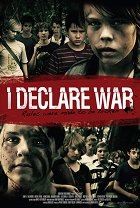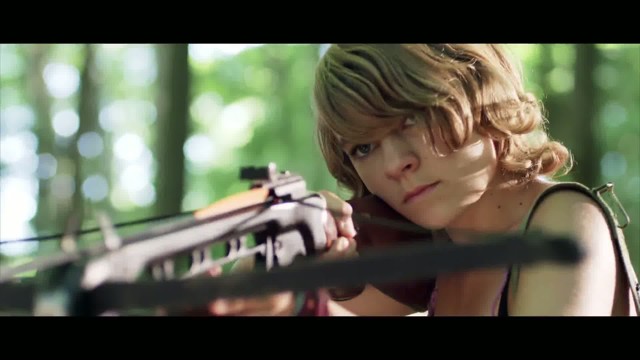Scenario:
Jason LapeyreCamera:
Ray DumasActeurs:
Gage Munroe, Siam Yu, Mackenzie Munro, Michael Friend, Alex Cardillo, Aidan Gouveia, Alex Wall, Dyson Fyke, Spencer Howes, Andy Reid, Kolton Stewart (meer)Samenvattingen(1)
In een afgelegen bos speelt een groep kinderen vlag veroveren. Voor hen is het geen spel, maar dodelijke ernst. Alle karaktertrekken die je bij volwassenen zou verwachten zijn bij de kids al aanwezig. PK en Quinn, de leiders van de rivaliserende groepen, doen alles om te winnen en zo machtsgevoel en status te krijgen. Ze liegen, bedriegen en gebruiken hun eigen vrienden. Andere kinderen laten zich van hun meest sadistische kant zien. Zo wil de mollige Jamie wraak nemen op iedereen die hem pest op school. Hij grijpt de zwakste van zijn tegenstanders en verliest het spel volledig uit het oog terwijl hij al zijn frustraties afreageert. Tussen alle jongens in loopt Jessica rond. Het spel interesseert haar eigenlijk geen bal, ze doet mee omdat ze stiekem verliefd is op één van de jongens. Maar wanneer blijkt dat ze tactisch veel slimmer is dan de meeste jongens en ze hen geweldig kan manipuleren, gaat ook zij de smaak van macht proeven. Aan het einde van de dag is de grens tussen fantasie en realiteit volkomen vervaagd en blijkt dat de deelnemers net zo ambitieus en keihard kunnen zijn als hun vaders en moeders in de echte wereld. (Three Lines Pictures)
(meer)Video's (2)
Recensie (1)
In his review of I Declare War, Michael Reuben perfectly summarised the film thusly: “War, as General Sherman famously stated, is hell. But Sartre later remarked that hell is simply other people.” The playing at soldiers here is not an ordinary battle, because with the exception of the two stubbornly rational original commanders, all of the other participants bring their own motivations from real life into it. The central protagonist, P.K. Sullivan, is an excellent tactician because he leaves all personal levels completely aside and though that may give him an advantage in the game, it also brings severe consequences into his personal life as the iniquities of the game carry over into reality for others. I Declare War is thus a thought-provoking reflection on war as a parallel reality in relation to civilian life, while the values of these two realities are completely incompatible and contradictory. At the same time, however, it offers a complex picture of friendship in adolescence, when the ingenuous ideals of “best friends” collide with the ambiguity of reality. That is also why the only one who can come out of the game a winner is the loner Caleb, who has a real friend who never lets him down, a dog. It’s true that the themes of friendship and boys playing war have been depicted elsewhere and in greater detail, but that in no way devalues the concept and the combination of those themes in this film. Furthermore, the characters are inventively depicted through their own imaginations, specifically in how seriously they take the game, which is shown by their “materialisation” of weapons. Based on that, it is possible to identify the characters who play the game and live through it (most of the boys), those who purposefully approach it for their own ends (Jessica and Skinner), and those who stand apart from the group (Wesley and Caleb), and this diversity of characters forms the foundations of the relationships and conflicts in the film.
()


